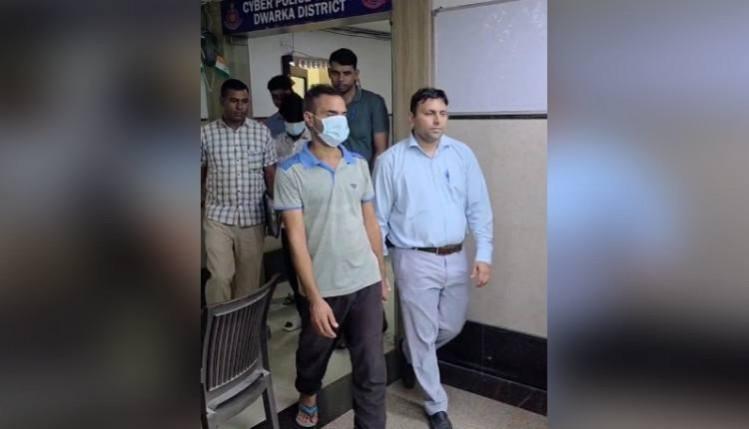
In a significant breakthrough against cybercrime, the Delhi Police have apprehended three cybercriminals operating from Rajasthan. This operation, led by the Cyber Police Station of Delhi's Dwarka district, was initiated following a surge in cybercrime complaints from local residents. The arrested individuals, identified as Deepak from Tonk, Surendra Kumar Dudi from Sikar, and Rajveer from Sirsa, highlight the growing concern over cybercrime hotspots emerging in regions like Rajasthan and Haryana. The operation was meticulously planned, with police teams dispatched to the suspected regions after a thorough digital trail analysis linked the crimes to remote locations in Rajasthan.
The police statement emphasized, "Preliminary investigation directed the line of inquiry towards new and emerging cybercrime hotspots in Rajasthan." This strategic move was based on intelligence gathered from digital footprints and field surveillance, leading to the successful capture of the suspects.
In a related development, India is making significant strides in the semiconductor industry, aiming to become one of the top five semiconductor nations globally. Union Electronics and IT Minister Ashwini Vaishnaw recently highlighted the country's rapid progress in building the necessary capital equipment and materials for semiconductor production. Speaking at the 14th convocation of IIT-Hyderabad, Vaishnaw emphasized the creation of a full ecosystem, from chip design to manufacturing, which positions India as a potential global hub for semiconductors.

The minister revealed that students from Indian Institutes of Technology (IITs) have already designed 20 chipsets, with eight having been "taped out" and sent for fabrication. These chipsets are being manufactured at global foundries and the government-owned Semi-conductor Laboratory (SCL) in Mohali. This initiative is part of the India Semiconductor Mission, which has provided advanced electronic design automation (EDA) tools to 270 colleges and 70 startups, supporting the production of India's first commercial-scale, Made-in-India semiconductor chip this year.
Meanwhile, in a tragic incident, the body of an eight-year-old boy from Agra, Uttar Pradesh, who had been missing for three months, was discovered in a sack buried near a road in Rajasthan's Dholpur district. The abductors had demanded a ransom of Rs 80 lakh for his release, but upon failing to receive the money, they killed the boy and buried his body. The police, acting on information, exhumed the body from near the highway in the Mania area. The victim's father, Vijay Pratap, a farmer with 20 bighas of land, had filed a missing complaint on April 30. The accused was identified as Pratap's neighbor, who runs a grocery shop.
In the energy sector, India is making steady progress towards oil self-sufficiency under the leadership of Prime Minister Narendra Modi. Petroleum Minister Hardeep Singh Puri announced that 1 million square kilometers of offshore area is now open for oilfield exploration, with 99 percent of 'No-Go' areas cleared. The Open Acreage Licensing Programme (OALP) has attracted significant interest from global and domestic energy players, with Round X expected to set new benchmarks for participation and investment.















